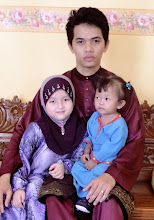
First of all, here's what happened to your body while you are fasting. Obviously you become more dehydrated. Your main metabolic fuel source for bodily function during fasting is mainly fat, whichis a good thing even though your metabolism will slow down due to less frequent meals. People do lose weight during Ramadan. But if you eat the wrong food, the weight you lose could be muscle mass instead of fat. So look, it's all about maximizing nutrient uptake, maintaining proper hydration, and modifying key fat burning/muscle building hormones in your favor during this month. By doing so,forget about maintaining muscle mass, you can even make some of your best gains during Ramadan.
Anyways, let me get to this program. Here's how my diet/meal intake looks like.
DIET PROGRAM.
1: Pre-dawn meal-Whey protein-Oatmeal (large flake, dry)-cheese (low fat)-3-5 dates-fish oil and some other multivitamins-Plenty of water (normally I'd down about half a gallon before the azan)
NOTE: look out for sodium food. What happen is high sodium intake can causegreater dehydration and it will make you thirsty during the day. So if you planto fast, stay away from sodium food for your pre-dawn meal. Avoid spicy foods,sauces, condiments, gravies etc. Keep up with your multivitamins to make sure your nutrients requirements are met. Don't forget your vitamin c!
2: Iftar (when you break your fast)-Chicken breast (5-6oz)-Brown r
ice (long grain, cooked)-potato (4-5oz)-Green beans (1/2 cup)-5-7 dates
NOTE: Iftar is the time for rehydration. So drink plenty of water! The wisdomin Islam is never ending. We break our fast with dates almost all the time. Butif you run a research on this nutritionally, you'll see that dates are uniquei
n their nutrient content and they contain very high levels of potassium, whichis a key re-hydration mineral and a special carbohydrate blend that enhance hydration above and beyond water alone. So if you eat dates and drink plenty of water, you're body gets hydrated MUCH FASTER than with water alone. So try to include dates in your diet.
3: After Tarweh prayers / before workout-Whey protein-Chicken sandwich (5oz, whole wheat)
NOTE: Eating small meals frequently can trick your body into speeding up metabolic rate as well as increasing nutrient absorption and stabilizing insulin and blood sugar levels. Our body loves h
omeostasis and wants to maintain a certain balance. So we will have to literally shock it constantly to lose fat and gain muscle over the long run. There is so much wisdom in "Eat and drink but not to excess" and let's try and follow that especially during Ramadan.
4: After Workout-Salad mixed (1 cup)-cottage cheese (1/2 cup)-Whey protein (1-1/2 scoop)
WORKOUT ROUTINE.
-Training while in a state of dehydration can decrease strength significantly.In fact, research indicates that dehydrating a muscle by as little as 3% can cause a 12% loss in strength. Training while you are fasting can be more detrimental than beneficial. So DO NOT train during the day if you're fasting!This can create way too much muscle breakdown and cause a significant rise in the catabolic hormone cortisol. The best time to weight train during Ramadan is at least 1 hour after iftar or early morning before suhur. If one of your goals is to lose fat, stick with working out before suhur. The best time to do cardiowork for maximum fat loss is before suhur. Not many people would want to wakeup 3 o'clock in the morning and workout. But if you can pull this off then the best thing to do would be cardio cool down for 30mins.
Try to follow these simple guidelines and nutrition tips. It'll help
you achieve decent gains. If you want to maintain your lean body mass, your muscle density, and keep your digestive system active throughout the day, go ahead give it a shot..You got nothing to lose. May God help give us patience and strength in this month and throughout the year and make us strong mentally,internally, spiritually, and physically!



0 comments